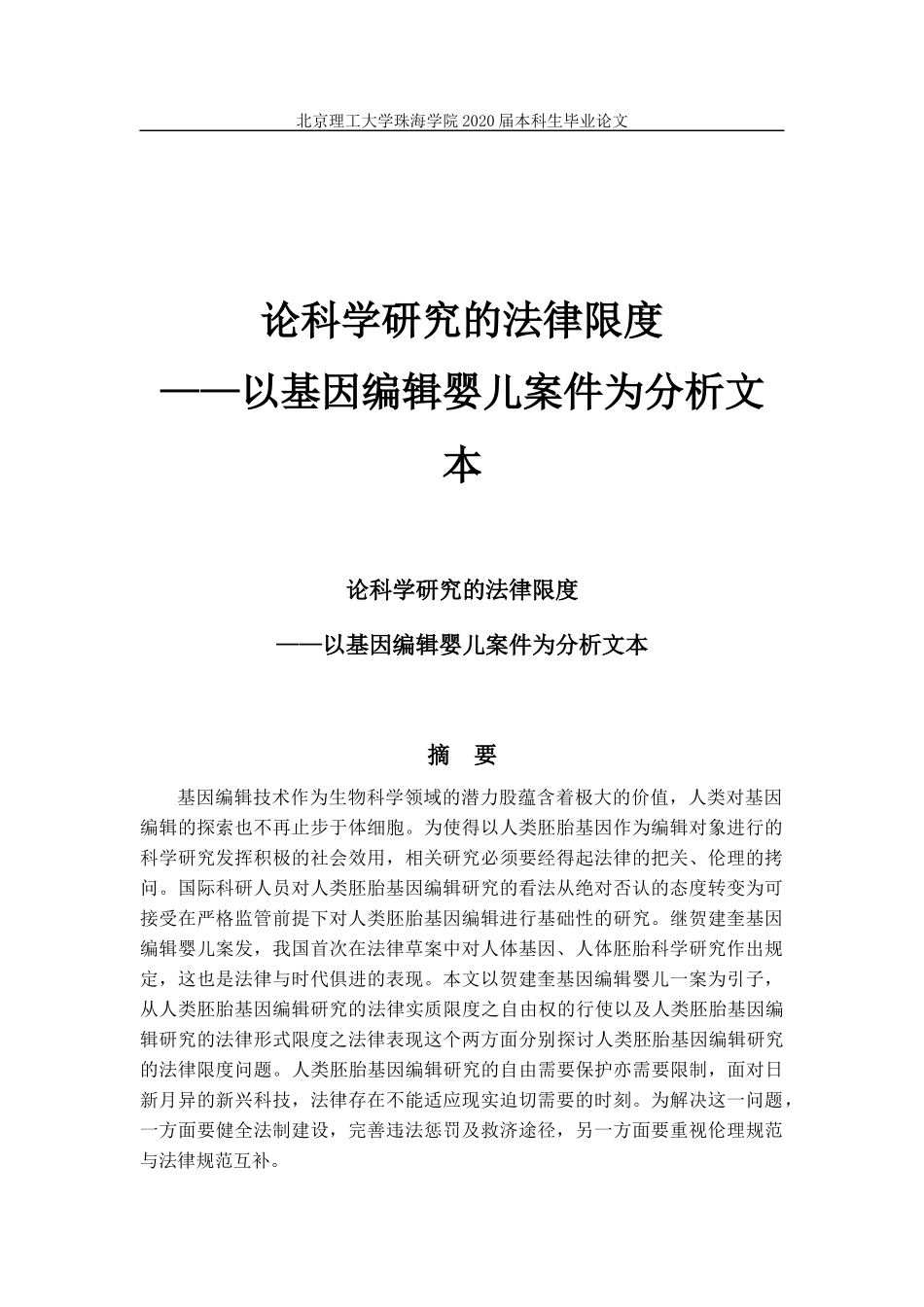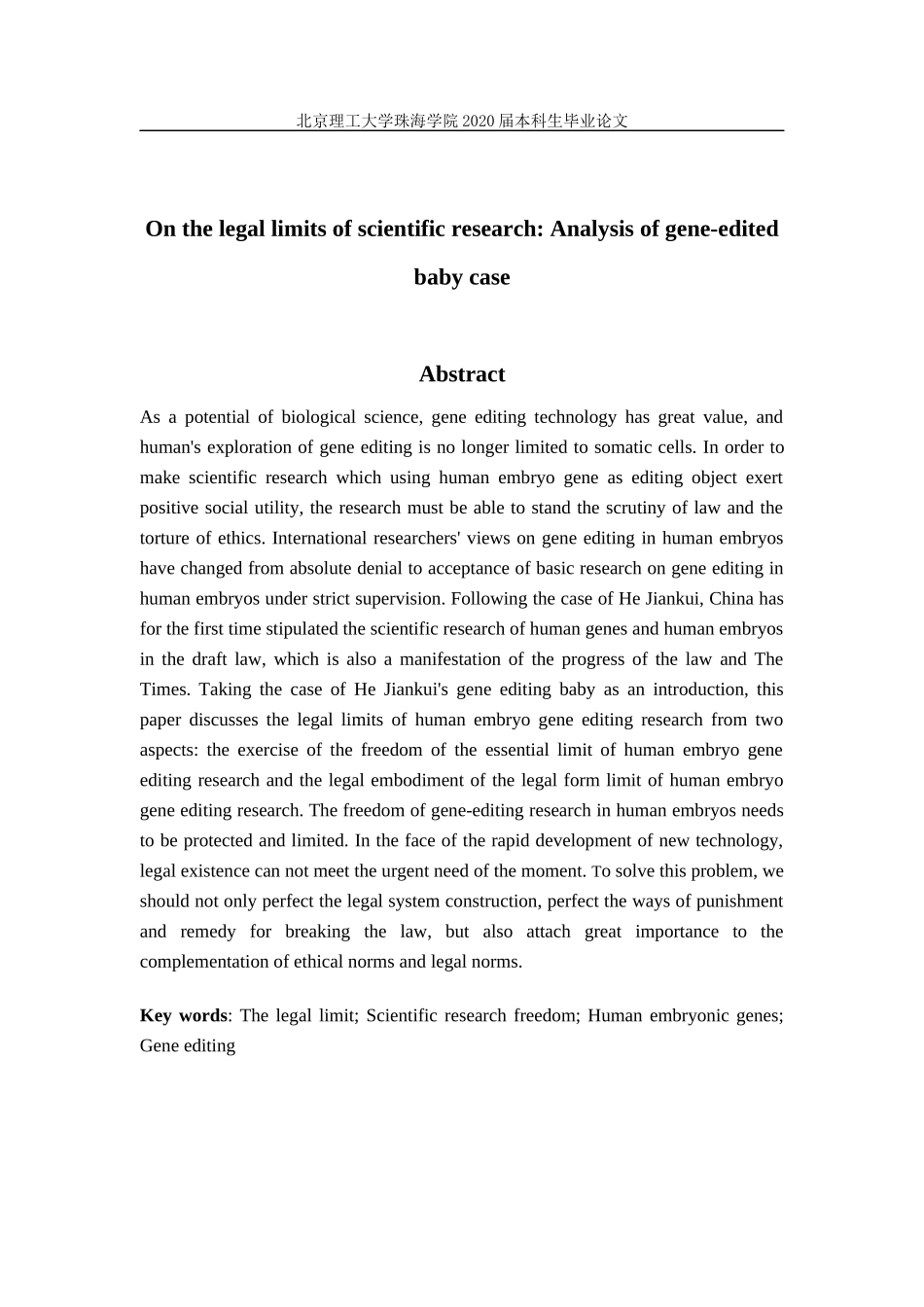北京理工大学珠海学院 2020 届本科生毕业论文论科学研究的法律限度——以基因编辑婴儿案件为分析文本论科学研究的法律限度——以基因编辑婴儿案件为分析文本摘 要基因编辑技术作为生物科学领域的潜力股蕴含着极大的价值,人类对基因编辑的探索也不再止步于体细胞。为使得以人类胚胎基因作为编辑对象进行的科学研究发挥积极的社会效用,相关研究必须要经得起法律的把关、伦理的拷问。国际科研人员对人类胚胎基因编辑研究的看法从绝对否认的态度转变为可接受在严格监管前提下对人类胚胎基因编辑进行基础性的研究。继贺建奎基因编辑婴儿案发,我国首次在法律草案中对人体基因、人体胚胎科学研究作出规定,这也是法律与时代俱进的表现。本文以贺建奎基因编辑婴儿一案为引子,从人类胚胎基因编辑研究的法律实质限度之自由权的行使以及人类胚胎基因编辑研究的法律形式限度之法律表现这个两方面分别探讨人类胚胎基因编辑研究的法律限度问题。人类胚胎基因编辑研究的自由需要保护亦需要限制,面对日新月异的新兴科技,法律存在不能适应现实迫切需要的时刻。为解决这一问题,一方面要健全法制建设,完善违法惩罚及救济途径,另一方面要重视伦理规范与法律规范互补。北京理工大学珠海学院 2020 届本科生毕业论文关键词:法律限度;科学研究自由;人类胚胎基因;基因编辑北京理工大学珠海学院 2020 届本科生毕业论文On the legal limits of scientific research: Analysis of gene-edited baby caseAbstractAs a potential of biological science, gene editing technology has great value, and human's exploration of gene editing is no longer limited to somatic cells. In order to make scientific research which using human embryo gene as editing object exert positive social utility, the research must be able to stand the scrutiny of law and the torture of ethics. International researchers' views on gene editing in human embryos have changed from absolute denial to acceptance of basic research on gene editing in human embryos under strict supervision. Following the case of He Jiankui, China has for the first time stipulated the scientific research of human genes and huma...












